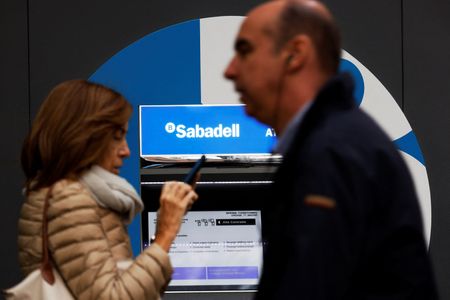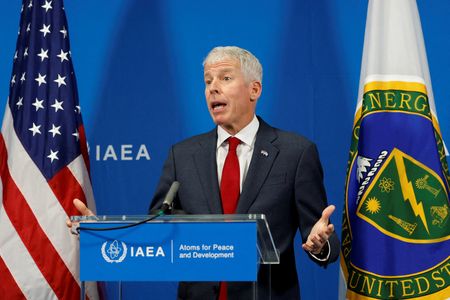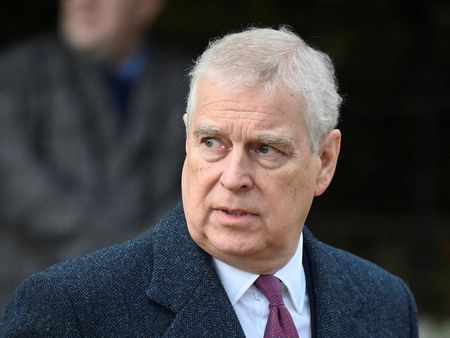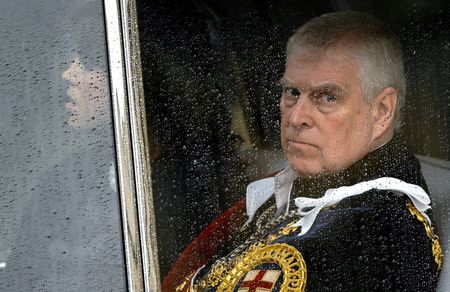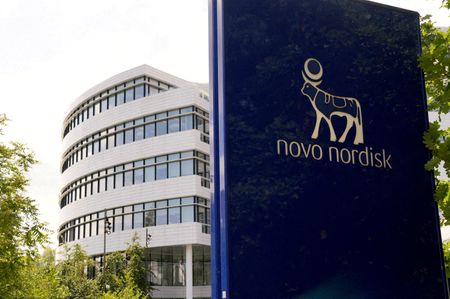By Jesús Aguado
MADRID (Reuters) -BBVA Chairman Carlos Torres will not resign after the collapse of the Spanish bank’s 18-month campaign to take over smaller rival Sabadell via a hostile bid.
BBVA sought the backing from owners of more than 50% of Sabadell voting rights, but shareholders tendered just 25.47%, dealing a blow for Torres, the architect of BBVA’s 16.32 billion euro ($19.1 billion) attempt to become Spain’s second-largest bank by assets.
Asked if he was considering quitting, Torres said: “No, I have repeatedly stated in the past that the outcome of this process had no bearing whatsoever on my continuity at the bank”.
The bid’s failure highlights the difficulties of executing European banking M&A deals even though some policymakers, regulators and investors want more banking consolidation.
DIFFICULT TO SAY WHAT WENT WRONG
Torres said on Friday he and CEO Onur Genc had the support of the entire BBVA board, which had unanimously backed all decisions, as well as support from shareholders.
Torres said it was difficult to say what went wrong, but he reckoned that low acceptance levels by retail shareholders and passive funds and Sabadell’s board unfavourable recommendation might have played a role.
BBVA’s move on Spain’s fourth-largest bank sparked a prolonged competition review, political opposition in Spain and an unprecedented government intervention that blocked an outright merger for three years.
Spain’s economy minister Carlos Cuerpo on Friday welcomed the “positive” outcome and defended the government’s opposition, saying its interventions protected the general public interest while Sabadell shareholders had the final decision. Potential job losses from the merger had been a worry for the government.
Sabadell’s defence strategy sent its stock soaring after the bank lavished cash on shareholders. But this weakened the economics of BBVA’s offer, forcing it to increase the bid in September and convincing many investors that Sabadell would be better off going it alone.
Shares in BBVA closed up 6% after the bank committed to its strategic four-year plan. BBVA said it would immediately execute a pending share buyback of around 1 billion euros and launch a “significant” additional share buyback programme.
Analysts at Jefferies said the Sabadell deal was perceived as a short-term drag for BBVA shares, given political opposition.
Nuria Alvarez, from Spanish broker Renta 4, said banks may need scale to keep investing in technology in the current global context and therefore saw scope for Spanish bank mergers, though “limited in the short term”.
ALL EYES ON SABADELL
Sabadell’s Chairman Josep Oliu welcomed the end of BBVA’s bid and said both banks were better off apart.
Sabadell’s shares fell 6.8%, reflecting analysts’ reservations about the risks facing a standalone Sabadell.
The bank said last month that it was planning to pay out 6.45 billion euros to shareholders from 2025-2027, including the 2.5 billion euro one-off cash dividend funded by the proceeds from the sale of its British unit TSB to Santander.
“What Sabadell needs to prove now is how will they be able to maintain growth rates without TSB’s contribution”, Alvarez at Renta 4 said. In the first half, TSB accounted for around 17% of Sabadell’s net profit.
Asked about a potential defence strategy, Sabadell’s CEO Cesar Gonzalez-Bueno last May said that he did not expect any other offer to follow BBVA’s merger proposal. Abanca and Unicaja had previously dismissed media reports about a potential deal with Sabadell.
But Gonzalez-Bueno said in the sector everyone talked to everyone with “varying degrees of intensity but we keep those conversations to ourselves”.
($1 = 0.8545 euros)
(Reporting by Jesús Aguado and Emma Pinedo; Editing by David Latona, Alexander Smith, Tommy Reggiori Wilkes and Jane Merriman)

